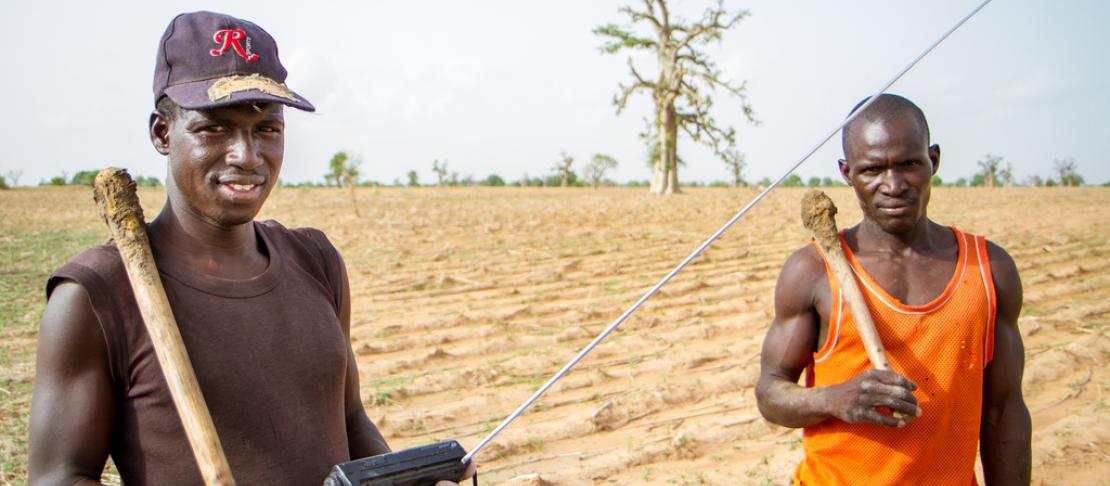Informing investment priorities of the Climate Services Partnership

Summary
The research was implemented in collaboration with the International Research Institute for Climate and Society (IRI).
Climate change causes a great deal of uncertainty for farmers, as weather patterns become more unpredictable and extreme. Climate services, such as climate information and advisories, can help farmers manage climate risks and better adapt to changing circumstances. The Climate Services Partnership (CSP), launched in 2011, is a collaborative platform focused on knowledge sharing and network building, with the goal of promoting climate resilience and improving the capabilities of climate services at a global scale. CSP aims to engage a diverse network of organizations, researchers and donors, to help climate science guide investment and inform decision-making relating to adaptation and development. CCAFS Theme 2 on Climate Risk Management is a core sponsoring partner of the CSP. In 2012, several CCAFS research and communication efforts contributed to the investment prioritization of the CSP and other key members, leading to an increased emphasis on targeting smallholder farmers.
Between 2010 and 2011, CCAFS participated in USAID West Africa regional stakeholder workshops, and conducted participatory action research in Kaffrine, Senegal on the communication of seasonal forecasts, in addition to evaluating national agrometeorological advisory programs in India and Mali. These activities, together with the workshop on ‘Scaling Up Climate Services for Farmers in Africa and South Asia’, informed the CSP and two core partners, USAID and World Vision, who made adjustments to their strategies.
A core part of the CSP’s contribution to its network partners is distilling evidence from case studies and evaluations of climate service initiatives. The methodology of the CCAFS Mali study informed the CSP’s strategy for gathering evidence in further climate service case studies. The study motivated an ongoing effort to create guidelines for best practices on evaluating the impacts, strengths, and weaknesses of existing climate services. Furthermore, the Mali study highlighted the relevance of rural communities as key targets for climate service investment. In addition, USAID employed the evaluation of Mali’s agrometeorological advisory program to create a strategy for enhancing climate services in West Africa. Furthermore, a succession of meetings and findings from CCAFS’ participatory action research in Senegal contributed to World Vision’s goals of including climate services for farmers as an intervention within its Secure the Future program in East Africa.
Key facts
- Climate services provide a useful tool to improve resilience of vulnerable smallholder farmers.
- The CSP aims to create a global research agenda for climate services and guide investment for improving the access and use of climate services.
- CCAFS efforts highlighted the importance of boosting climate services for smallholder farmers, and informed the strategies of the CSP, USAID and World Vision.
Lessons: key elements of success
- CCAFS participation in the CSP helped direct focus on the importance of targeting climate services to smallholder farmers.
- The participatory approach helped capture community feedback and innovations in climate services.
- Involving farmers in the design, production and evaluation process is important for the success of climate services directed towards smallholders.
- Building partnerships to bridge gaps between agricultural research, farmers and climate is key.
Further reading
Related research outputs
- Tall A, Hansen J, Jay A, Campbell B, Kinyangi J, Aggarwal PK and Zougmoré R. 2014. Scaling up climate services for farmers: Mission Possible. Learning from good practice in Africa and South Asia. CCAFS Report No. 13. Copenhagen: CGIAR Research Program on Climate Change, Agriculture and Food Security (CCAFS).
- Tall, A, Jay A, Hansen J. 2013. Scaling Up Climate Services for Farmers in Africa and South Asia Workshop Report. CCAFS Working Paper no. 40. CGIAR Research Program on Climate Change, Agriculture and Food Security (CCAFS). Copenhagen, Denmark.
- Tall, A, Njinga J-L. 2013. Developing a Methodology to Evaluate Climate Services for Farmers in Africa and South Asia Workshop Report. CGIAR Research Program on Climate Change, Agriculture and Food Security (CCAFS). Copenhagen, Denmark.